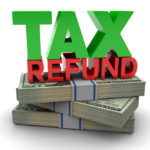 Followers of this blog know that I tend to focus on saving and investing rather than trying to pay off my mortgage faster. Indeed, our household assets are projected to exceed $1 million this year but we’ve still got a $200,000 mortgage to contend with.
Followers of this blog know that I tend to focus on saving and investing rather than trying to pay off my mortgage faster. Indeed, our household assets are projected to exceed $1 million this year but we’ve still got a $200,000 mortgage to contend with.
So why don’t I make it a priority to pay off my mortgage? It’s not strictly about dollars and cents. Here are three reasons:
1.) Higher Priorities
Setting priorities is part of any good financial plan, and those priorities change as you move through different stages of life.
For many years we put all our effort into paying off student loan and consumer debt. Then we became laser-focused on saving for a large house down-payment. Priorities shifted again towards maxing out my unused RRSP contribution room. And now, finally, we’re catching up on years of unused TFSA contribution room.
My wife and I are on the same page with our financial priorities. Right now, we’re focused on these four areas:
- TFSA – contribute $1,000/month
- RRSP – max out our available contribution room
- RESP – max out contributions for our two kids
- Travel – Visit Scotland/Ireland this summer. Vancouver in October. Maui in February.
Paying off the mortgage slides in at priority number five, which leads to the second reason.
2.) Finite Resources
In a perfect world we would all max out our RRSPs, TFSAs, RESPs, and start investing in a taxable account: all while doubling up on our mortgage payments and still having money left over for dining, travel, and sending the kids to hockey school.
Reality check. We don’t have infinite resources, so we need to make choices and trade-offs.
I mentioned above that we neglected our TFSAs for many years. That’s because we decided to get a new car and pay it off over four years. Our TFSA contributions turned into monthly car payments.
Now that the car is paid off, we can go back to funding our TFSAs and hopefully catch up on all that unused room before we need a new car again.
Speaking of cars, ours are now 12 and six years old. This “sacrifice” – if you can call not getting a new car every 4-5 years a sacrifice – allows us to increase our savings rate and fund more of our financial priorities each year.
Unfortunately, there isn’t another $800/month money leak in our budget to close that will allow us to fund a fifth financial priority (extra mortgage payments). Not yet, anyway.
And remember, it’s not simply about earning more money. I’m already combatting stagnant wage growth and creating my own raise by freelancing, selling used items online, and earning credit card rewards. That extra income allows us to do everything we’re doing now, plus keep pace with inflation and feed a growing family.
3.) Mortgage debt and asset allocation
We tend to think of mortgages and investments in isolation, but if an investor has any debt at all – including a mortgage – then he or she is effectively borrowing to invest.
You could say that I have a leveraged investment loan of $200,000. Another way to think about the mortgage is that I am short fixed income. Continue Reading…
 Those who are regulars to this site will know that Getting out of Debt is the first step towards achieving Findependence, or Financial Independence.
Those who are regulars to this site will know that Getting out of Debt is the first step towards achieving Findependence, or Financial Independence.





